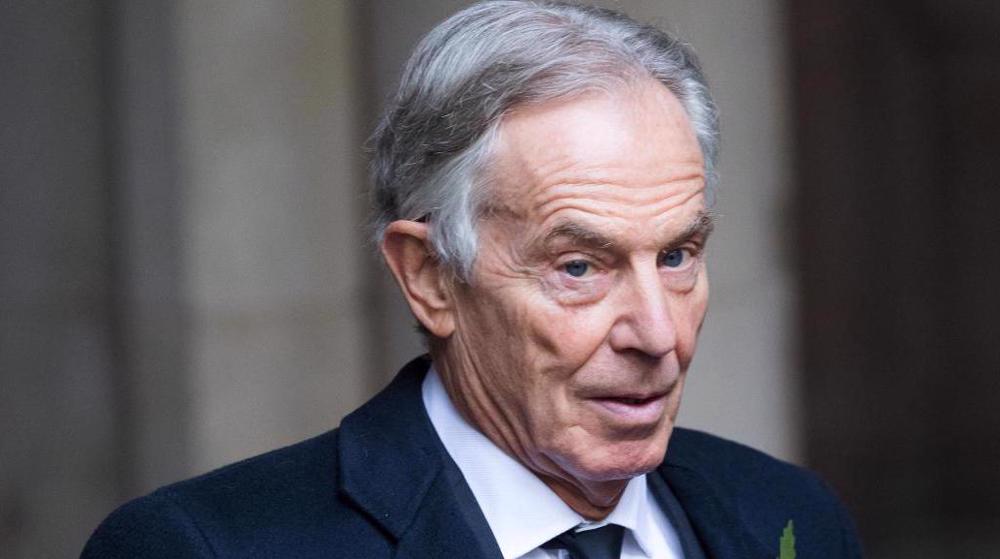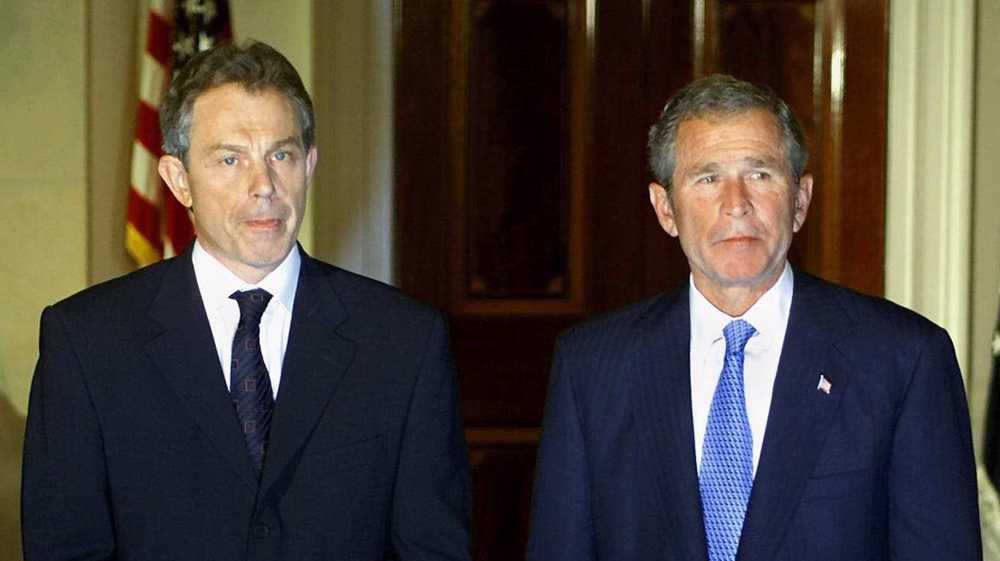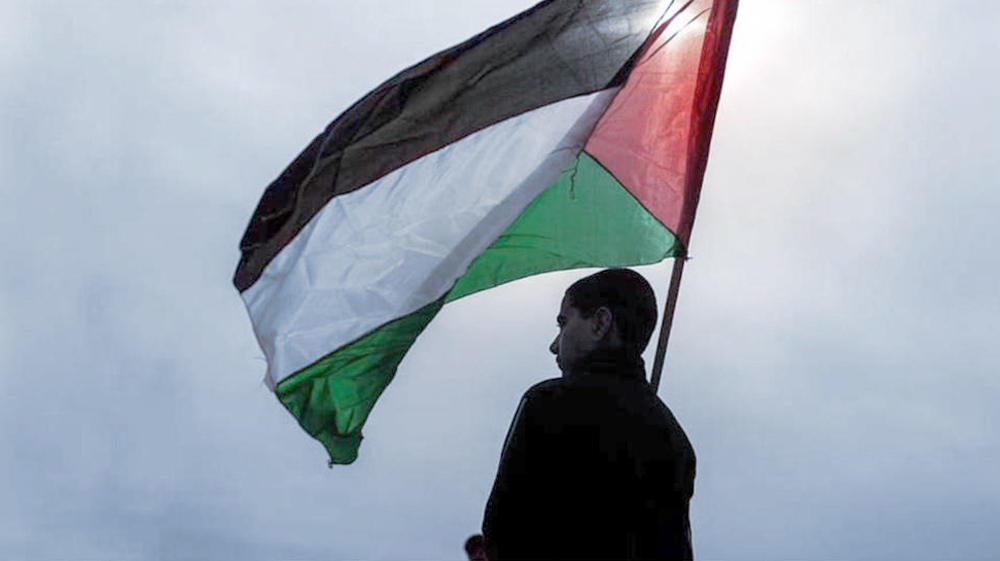Chilcot’s Iraq war inquiry is a road to nowhere: Analyst
The Chilcot inquiry into the circumstances surrounding the 2003 invasion of Iraq and its aftermath into the war is a road to nowhere, and former British Prime Minister Tony Blair won’t be prosecuted for war crimes over his role, says Barry Grossman, an international lawyer and political analyst based in Bali, Indonesia.
Blair on Sunday indicated that he will not accept the verdict of the upcoming Iraq war inquiry report if it accuses him of committing London to invading the Arab country before he told parliament.
“Tony Blair’s suggestion that he is inclined to reject any criticism of him leveled by the Chilcot report is a storm in a tea cop and certainly not surprising since he remains steadfast in his professed belief that he was correct to back the war on Iraq and has no regrets,” Grossman told Press TV on Monday.
“Regardless of his rejection of the report, it will stand on its own and in no way depends on Blair’s acceptance of its conclusions but, that said, the Chilcot inquiry is a process which leads nowhere,” he added.
Sir John Chilcot, a former British civil servant, is due to publish his long-awaited inquiry on the Iraq war on July 6. The Chilcot inquiry report is expected to be highly critical of Blair and other political and military officials.
Blair will be judged by history
“Blair will only be judged by history rather than by a war crimes tribunal. The most we can expect from the report is that it will help drive public opinion to the correct conclusion that Blair was a deceptive, hypocritical, and undemocratic villain responsible for the destruction of a nation and for the blood of countless thousands of innocent victims,” Grossman said.
“There is a great deal of misunderstanding about the legal status of the Chilcot inquiry and its terms of reference. While the official line is that if it the inquiry is presented with clear and credible evidence that a crime was committed it will refer the matter to the proper authorities for investigation, the inquiry’s terms of reference make it very clear that the long, cumbersome and very expensive exercise it engaged in was never concerned with determining whether British involvement in the Iraq invasion was contrary to international law or with apportioning legal blame for any decisions that were taken,” the international lawyer explained.
“Rather, the inquiry was conceived to undertake a broad inquiry into the relevant events in order ‘to establish, as accurately as possible, what happened and to identify the lessons that can be learned,’” he added.
“In that regard, Sir John Chilcot himself said, ‘We are determined to be thorough, rigorous, fair and frank, to enable us to form impartial and evidence-based judgments on all aspects of the issues, including the arguments about the legality of the conflict.’ But as the inquiry is not a judicial one and the committee members are not legal experts it seems unlikely to come up with a definitive conclusion,” he continued.
“That is to say, it is a largely academic exercise which might just as well have been left to historians,” the analyst said.
Chilcot inquiry report to be critical of Blair
“While we can expect the inquiry’s report to be critical of Tony Blair and his Attorney General Lord Goldsmith - who, at the time, flip-flopped on the issue of whether the invasion was legal - it is naive to expect any clear assessment of criminality in the decisions which were made by the Blair government. Indeed, the entire process is really quite absurd bearing in mind that the core issue of whether, as a Dutch inquiry has already found, the war was contrary to international law, is only of ancillary relevance to the inquiry’s terms of reference and lies outside its professed expertise,” Grossman said.
“Yes, it seems that Blair may very well be criticized for misleading the public by not disclosing his prior agreement with George W. Bush to support regime change and a war on Iraq. But no matter how vociferous any such criticism may turn out to be, it cannot in itself provide the basis for Tony Blair being prosecuted for war crimes, as many people hope,” he added.
“While the robust criticism we are expecting to be leveled at individuals like Blair, Goldsmith, and specific members of the intelligence apparatus who overstated intelligence reports will generate a lot of public debate and ultimately tarnish Tony Blair legacy even more than it already is; I will not be surprised if all such criticisms are in fact be structured in a way that facilitates the allegations against one or more individuals being used by each of the others to mitigate the criticisms leveled at them and introduce enough doubt to kill any impetus for criminal prosecutions,” the commentator stated.
Iraq invasion was illegal
“While Jeremy Corbyn’s expressed view that British participation in the invasion was illegal is commendable and hardly controversial, his call for all involved in committing war crimes to be prosecuted is going to require a lot more legal grounding than can be provided by the Chilcot inquiry and certainly a level of political will which remains entirely lacking among both political parties,” Grossman said.
“Indeed, the required political will is unlikely to ever exist bearing in mind that if those responsible for the Iraq invasion are prosecuted, then those responsible more recently for British involvement in the bombing of Libya, the illegal bombing campaign in Syria, and for British support of the illegal Saudi war on Yemen would also have to face prosecution,” he noted.
“No matter how much many of us may like to think otherwise, that is simply not going to happen and there is in fact no historical or legal precedent for any Atlantic World nation voluntarily prosecuting its own former head of state for war crimes committed in supporting a belligerent invasion that was also broadly supported by the wider political establishment in the country in question,” he pointed out.
“We have to be realistic about where the Chilcot inquiry is leading us and ultimately, I am sad to say, it leads us nowhere,” the analyst concluded.
Israeli occupation of Palestine ‘main cause of instability’ in region: Turkish FM
VIDEO | Columbia students camp on university grounds in support of Palestinians
VIDEO | Muslim unity and Palestine
UN Security Council's inaction prompted Iran to attack Israel: FM
Know their names: Palestinian athletes, scouts, coaches killed by Israel in Gaza
'It was not a strike': Iran FM dismisses Israeli weapons as 'children toys'
The struggles of Occupied Palestine
Saadi Day: Ayatollah Khamenei exalts great Persian poet









 This makes it easy to access the Press TV website
This makes it easy to access the Press TV website